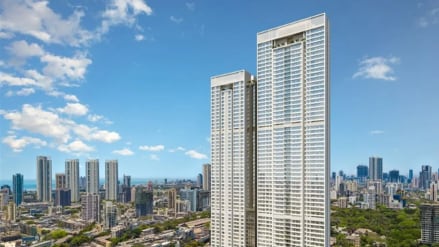A recent Reddit thread has sparked a raw conversation about the growing challenges faced by homebuyers in India, particularly in cities like Mumbai, where property prices have soared to astronomical levels. The post, which resonated deeply with many users, conveyed the stark reality of the country’s housing crisis, especially for the younger generation.
“30 times the average annual income for a 600-square-foot apartment in Mumbai. We laugh nervously, comparing prices over chai, but the laughter dies when we glimpse the ledger of reality,” wrote a Reddit user. This candid reflection captured the despair felt by many aspiring homeowners in the face of surging property prices.
Rising Housing Costs and Worsening Affordability
The data behind these sentiments is undeniable. According to the National Housing Bank, India’s housing affordability has dropped to its lowest point in 15 years. The country’s Price-to-Income (P2I) ratio currently stands at 11, meaning an average household would need over 20 years of savings, or 11 years of full income, to afford a modest home. In comparison, New York City’s P2I ratio also stands at 11, highlighting just how unaffordable housing has become in India’s largest cities.
Mumbai tops the affordability list with a P2I ratio of 14.3, the highest in the country. Delhi follows at 10.1, while Bengaluru, a major tech hub, has also breached affordability limits. Only cities like Chennai, Ahmedabad, and Kolkata remain within the globally accepted benchmark of affordability, with P2I ratios hovering around 5.1.
The financial burden has only worsened over time. The EMI-to-income ratio for low-income households surged from 43% in 2020 to 62% in 2024, far exceeding the 50% threshold set by India’s banking sector. For many, securing a loan has become nearly impossible.
The Black Money Paradox
Reddit users have pointed out the deep-rooted issues within the system, where wealth, rather than need, is prioritized. “30% of Indian real estate deals still involve unaccounted cash,” one user stated. This reflects an ongoing issue with black money in the real estate market, which continues to make homeownership even more elusive for the average citizen.
Government data paints a similar picture. Affordable housing supply, defined as units priced under Rs 1 crore, has dropped by 36% in just two years, from over 3.1 lakh units in 2022 to less than 2 lakh in 2024. Cities like Mumbai, Hyderabad, and NCR have seen sharp declines in affordable housing supply, with reductions of up to 69%. On the other hand, the luxury housing market has surged by 48% nationwide, with some cities seeing double the increase.
Developers Shift Focus to High-Margin Segments
The reasons behind this growing divide are complex. Developers are focusing more on high-margin luxury segments, where the returns are greater. The scarcity of land, rising construction costs, and an influx of foreign investment in premium properties have all contributed to pushing the middle class further away from the housing market.
Even smaller units, once considered affordable, have seen outsized price hikes. In Mumbai, apartments under 30 square meters have experienced a 55% increase in prices since 2019, while mid-sized homes (60–160 square meters) have risen by a comparatively smaller 29%.
The Future of Homeownership in India
Despite these grim statistics, a few Reddit users still defend homeownership, citing the emotional and personal value of owning a home. “There’s something about living in a home you own — the permanence, the customization, the depth of decision-making,” one user wrote. “Even if it’s a terrible financial decision, it’s still home.”
However, for most, the conclusion is clear: homeownership in India is no longer just delayed — it is effectively denied. While some experts predict that home prices may rise by a modest 6.5% in 2025, slower than previous years, and interest rate cuts could ease EMI burdens, hopes remain fragile. In fact, 8 out of 12 housing experts predict that affordability will worsen for first-time buyers in the coming years.
As one Reddit user aptly put it, “This isn’t a housing market. It’s a paradox — where homes are built, but not meant to be lived in.”
The struggle for homeownership in India continues to reflect the wider challenges of income inequality and economic imbalance, as a whole generation grapples with the reality of being priced out of their own dreams.
